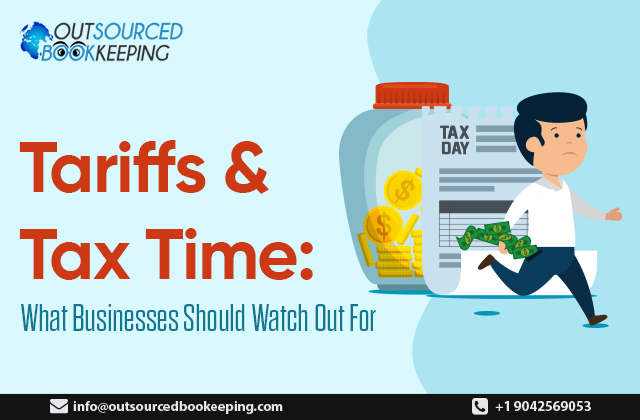As businesses prepare for tax season, one important factor that is often overlooked is the growing connection between tariffs and taxes. With international trade continuing to shape business operations in the United States, companies that import or export goods must understand how tariff obligations affect their financial standing, especially at tax time.
From influencing cost structures to altering profit margins, tariffs can significantly affect a company’s tax calculations and overall compliance. Whether a business is large or small, understanding how tariffs and taxes for businesses are linked can help avoid surprises and support more strategic financial planning.

Understanding the Relationship Between Tariffs and Taxes
Tariffs are charges placed on imported goods by a government to control trade or support domestic industries. Though they are different from income taxes or other forms of business taxation, they are more intertwined than most businesses can imagine.
The essence is in the way tariffs affect business costs and, consequently, taxable income. Tariffs make imported goods expensive and therefore increase the cost of goods sold (COGS). Since higher COGS can decrease the gross profit, this may lead to a decrease in taxable income as well.
However, the situation is not always that simple. The effect of tariffs on business tax returns depends on how tariffs are accounted for in the business’s accounts and how they are apportioned between inventories and expenses.
How Tariffs Affect Business Tax Liabilities?
Another issue that may interest organisations that source products from overseas is how tariffs impact their business taxes. Inaccurate classification or reporting of tariffs may result in problems such as underpayment or overpayment of taxes, failure to claim deductions, or even penalties.
Some organisations include tariffs in the value of inventories, while others consider them as operating expenses. The type of treatment affects the financial statements and tax returns differently. If neglected, it can lead to an audit or even a misstated profit figure in the company’s books.
Moreover, a sudden change in tariffs alters a business’s financial outlook at the end of the fiscal year. If tariffs rise at the end of the fiscal year, it leads to more than expected expenses and changes in the estimated tax payments. Companies need to be ready to report such changes in their tax returns accurately.
Impact of Tariffs on Tax Filings
Documentation is important when preparing taxes. The impact of tariffs on tax filings is realised when businesses start compiling their accounts and filing their taxes. Tax authorities may demand cost schedules and supporting documents on how import duties and tariffs were charged on imported stock or raw materials.
Companies that do not keep such records may not be in a position to explain some of the allowable deductions, leading to increased taxes. In some circumstances, the IRS or state authorities may even disallow entire portions of tax claims if the tariff costs are not properly identified.
In addition, it should be noted that tariffs can affect the depreciation of fixed assets and their depreciation schedules. For instance, if machinery is imported, the cost of the machinery will be high due to the high tariffs placed on it. This has an impact on the value of the asset recorded in the company’s balance sheet and may alter the method used to write off the asset for tax.
Tariff and Tax Planning for Small Businesses
While large companies can afford to employ specialists who would be able to track the changes in tariffs and taxes, small businesses cannot. Nevertheless, tariff and tax planning is equally important for small businesses, especially for manufacturing, wholesale, or retail businesses that rely on imported products.
Small business owners should seek the services of accountants who have adequate knowledge of international trade laws and taxation laws. These experts can help in the proper classification of tariffs, determine the costs that can be excluded from tariffs, and come up with strategies that will help in reducing the effects of high tariffs on taxes.
It may also entail changing the procurement strategies, revising the contracts with suppliers, or sourcing from local suppliers where possible. These steps can minimise the tariff impact on business tax returns predictable before the tax season comes.
Conclusion: Be Prepared with Knowledge
Tariffs are no longer a problem that only large multinational companies face, they are a part of the daily life of many companies. Tariffs and taxes are two concepts that are closely related in the context of businesses, and the relationship between them becomes even more complicated during the tax season. When the tariff is understood in terms of how it affects business tax returns, firms can then take measures to protect profitability and avoid penalties.
When it comes to business tax liabilities, tariffs pose certain risks that can be mitigated by understanding how they work and how they can be managed when filing taxes. Regardless of the reason, whether it is compliance, cost, or planning, tariff and tax planning for small businesses is not a luxury but a necessity for growth and strategic business in 2025 and beyond.








